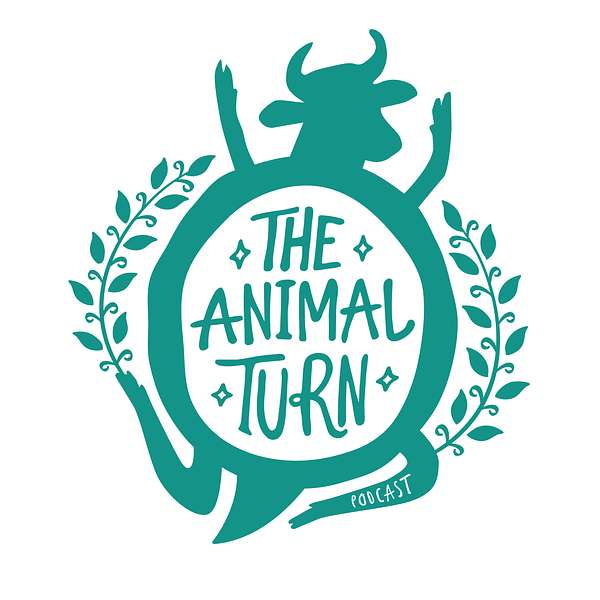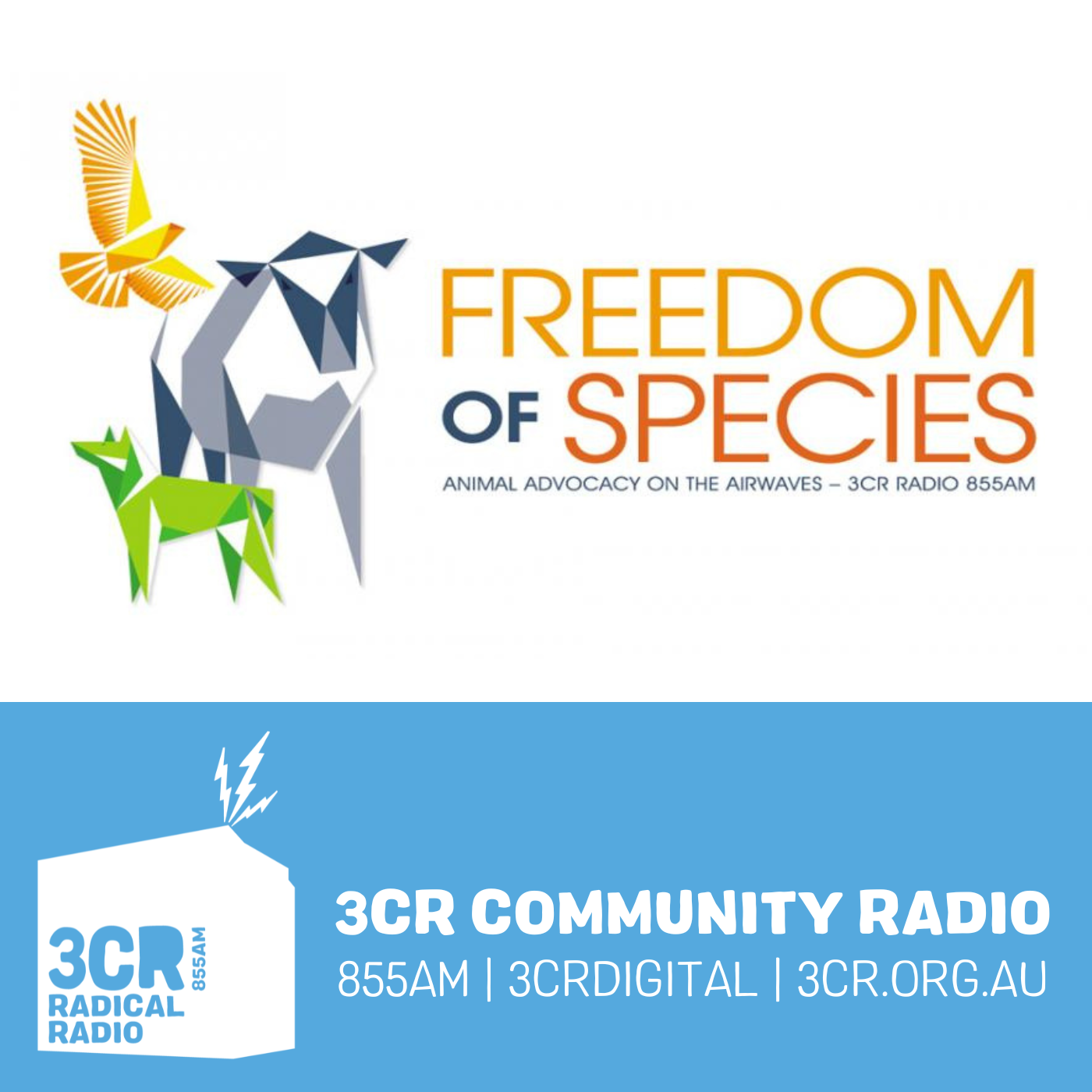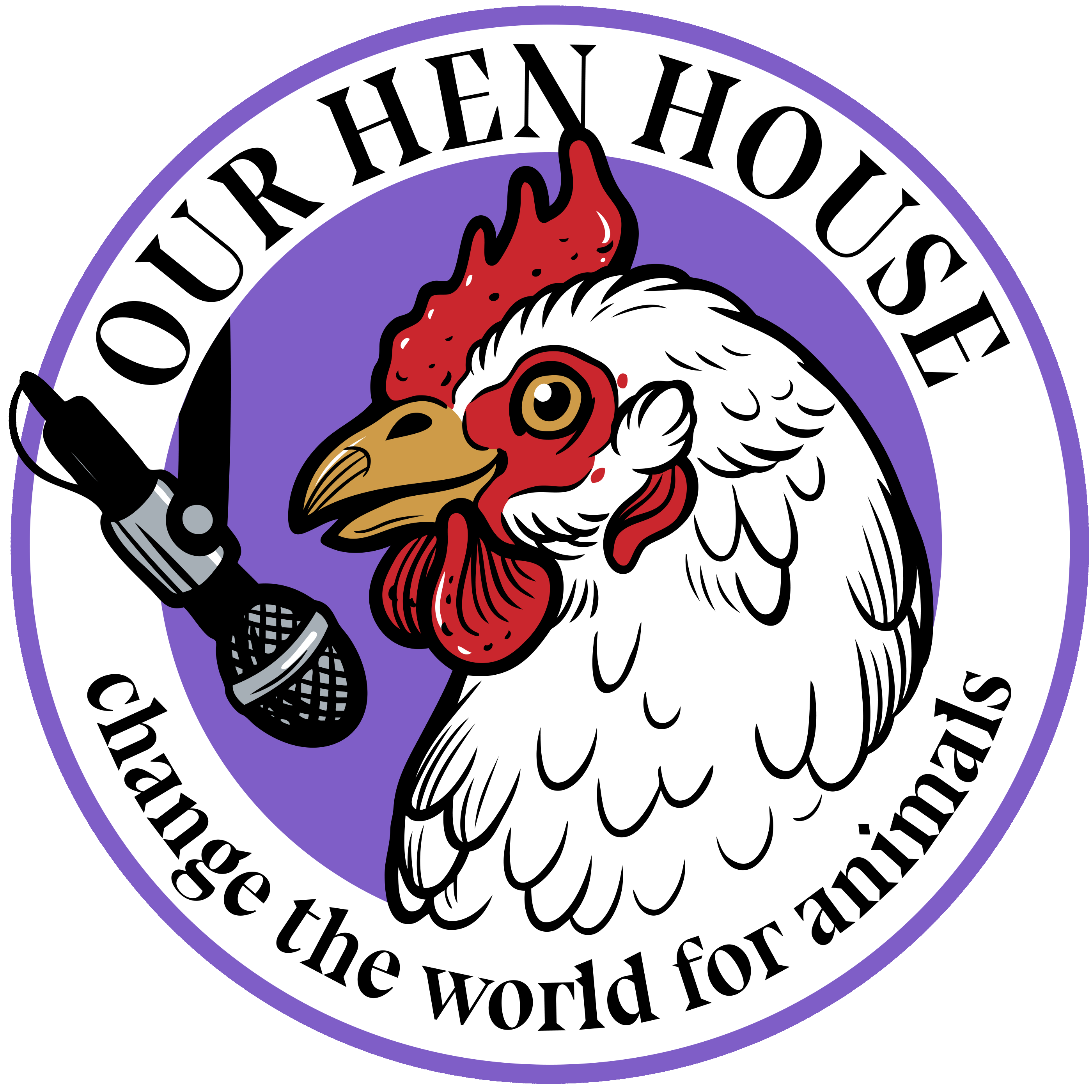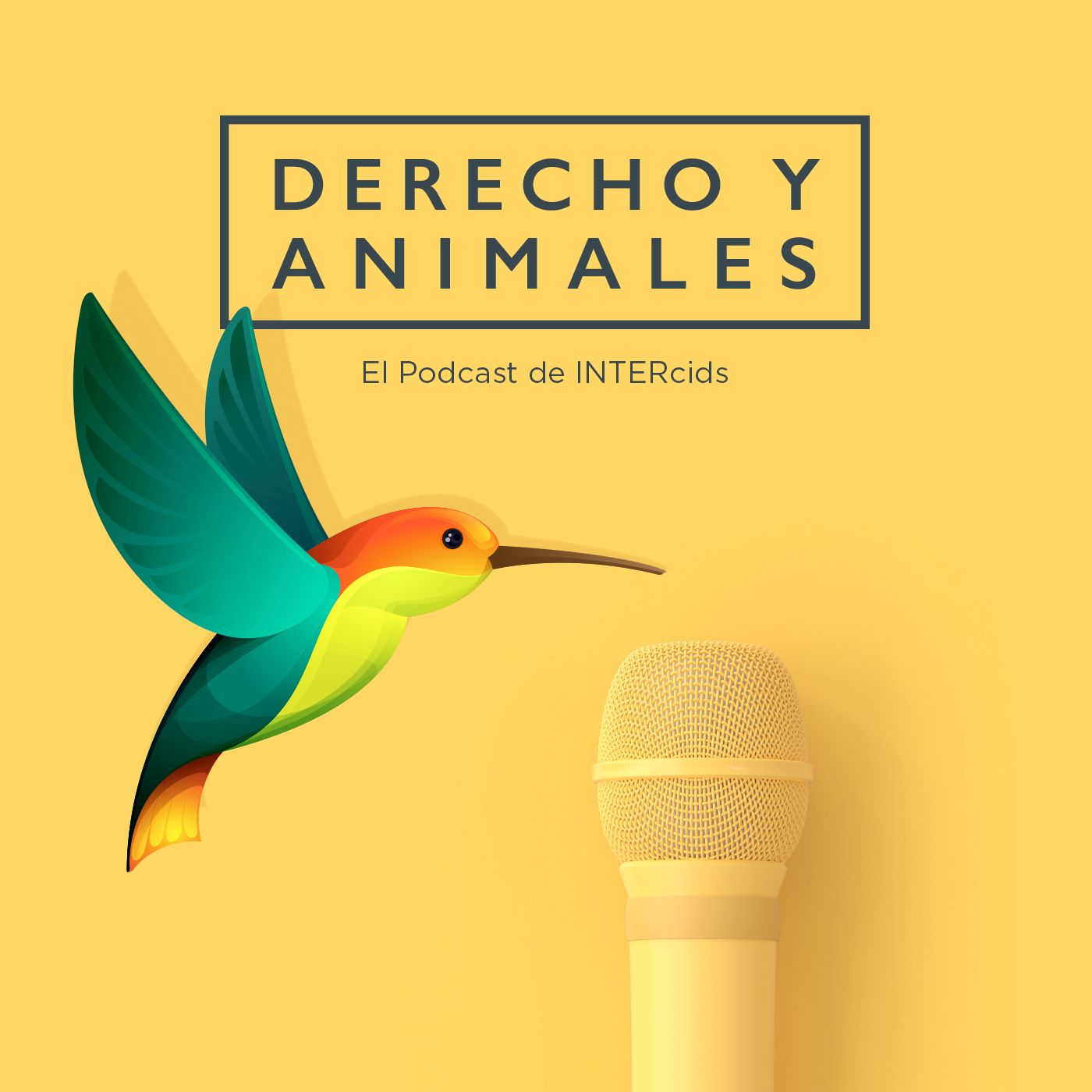
The Animal Turn
Animals are increasingly at the forefront of research questions – Not as shadows to human stories, or as beings we want to understand biologically, or for purely our benefit – but as beings who have histories, stories, and geographies of their own. Each season is set around themes with each episode unpacking a particular animal turn concept and its significance therein. Join Claudia Hirtenfelder as she delves into some of the most important ideas emerging out of this recent turn in scholarship, thinking, and being.
The Animal Turn
Bonus: Phoenix Zones with Hope Ferdowsian
In this episode Claudia talks to public health expert Hope Ferdowsian about Phoenix Zones, a concept that captures places and practices that advance the rights, health, and well-being of people, animals, and our shared environments. They discuss how crises present opportunities for change as well as how humans and animal who have experienced trauma show capacities for resilience when they are afforded with liberty, autonomy, and dignity.
Date Recorded: 21 September 2023.
Hope Ferdowsian is a professor of medicine at the University of New Mexico School of Medicine and the president of Phoenix Zones Initiative, a global nonprofit that uses medical and public health expertise to advance the health and well-being of people, animals, and the planet. With over two decades as an internal medicine, preventive medicine, and public health physician, she has cared for individuals who have experienced displacement and violence, and worked on policy to address human, animal, and environmental exploitation. Her work across six continents has included consultative support for national and intergovernmental policy makers. Dr. Ferdowsian’s work has been featured through Scientific American, HuffPost, BBC, Voice of America, and other international news outlets. Many of her publications, including her book, Phoenix Zones: Where Strength Is Born and Resilience Lives, focus on ethics, global public health, and the links between human, animal, and planetary rights, health, and well-being.
Claudia (Towne) Hirtenfelder is the founder and host of The Animal Turn. She has a PhD in Geography from Queen’s University, and her research is focused on the significance of the problematization of urban animals. She was awarded the AASA Award for Popular Communication for her work on the podcast. Contact Claudia via email (info@theanimalturnpodcast.com) or follow her on Twitter (@ClaudiaFTowne).
Featured:
- Phoenix Zones: Where Strength Is Born and Resilience Lives, by Hope Ferdowsian
- Wild Justice: The Moral Lives of Animals by Marc Bekoff and Jessica Pierce
- The Impossible Will Take a Little While by Paul Loeb
A.P.P.L.E
Animals in Politics, Law, and Ethics researches how we live in interspecies societies and polities.
iROAR Network
iROAR brings together podcasts that aim is to make the world a better place for animals.
Disclaimer: This post contains affiliate links. If you make a purchase, I may receive a commission at no extra cost to you.
The Animal Turn is hosted and produced by Claudia Hirtenfelder and is part of the iROAR Network. Learn more on our website.
- Leave a Review on Podchaser
- Check out The Animal Turn Merch.
- Support us on Patreon, Buy Me a Coffee, and Buzzsprout.
00:00 - Introduction
- “I think people are ready for a significant transformation in the ways in which we treat each other, other beings, and our shared environments” – Hope
- Dr. Hope Ferdowsian is president of Phoenix Zones Initiative, a global nonprofit that uses medical and public health expertise to advance the health and well-being of people, animals, and the planet. With over two decades as an internal medicine, preventive medicine, and public health physician, she has cared for individuals who have experienced displacement and violence, and worked on policy to address human, animal, and environmental exploitation. Her work across six continents has included consultative support for national and intergovernmental policy makers. Dr. Ferdowsian’s work has been featured through Scientific American, HuffPost, BBC, Voice of America, and other international news outlets. Many of her publications, including her book, Phoenix Zones: Where Strength Is Born and Resilience Lives, focus on ethics, global public health, and the links between human, animal, and planetary rights, health, and well-being. She is a professor of medicine at the University of New Mexico School of Medicine.
- Upcoming event on the 17th of October: Media Day: A Q & A with Experts for Journalists Reporting on Science, Health, and Medicine
- Win a copy of Hope’s book, check out how on social media!
04:23 – Welcome and a bit about Hope
- Has had many opportunities to work with people across six continents and to care for people who have experienced different forms of violence and displacement. Aims to end exploitation of humans, animals, and the environment.
- Work on hunger and malnutrition, forced migration, climate change – study and writes about these issues with a focus on ethics and public health.
- Phoenix Zones Initiative is a global non-profit
07:46 – Crises and Opportunities for Change
- The organisation was launched just before the COVID-19 pandemic
- “I’m a believer that there is a lot of opportunity in crisis and in challenges” – Hope
- “In medicine and in public health what we know is the best time to launch an intervention is often in the middle of a crisis or just after a crisis” – Hope
- Re-building health care systems is often best achieved during a crisis or after a conflict.
- The pandemic was awful for people and animals across the globe but the pandemic provided an opportunity to push forward an agenda that addresses the root causes of pandemics – including the maltreatment of non-human beings.
- The WHO conversations about the pandemic treaty is a testament to this.
- The pandemic showed how quickly political will can change systems quickly.
- “There can be massive and significant change when there is political will” – Claudia
- “And it is also an opportunity to reflect” – Hope
10:56 – Systematic Violence, Trauma, and Resilience
- There are so many types and scales of violence.
- A lot of Hope’s human rights work focuses on torture and sexual violence. She has met many survivors of trauma.
- These people who face trauma show incredible resilience.
- Hope met Doc when she was evaluating him when he was applying for asylum in the USA. He suffered from torture. Over time Hope has come to see his resilience and how he has thrived in an open and free society.
- It is not only humans who experience trauma from violence. Humans and animals experience fear when their safety threatened.
- There are structures that make some of us more vulnerable than others. But they can also promote resilience if they emphasize freedom, opportunity, and dignity.
- “When we realise how much potential we all have it makes it even more serious and urgent that we address suffering among our fellow human beings and fellow non-human beings.”
- Touched by the capacity to be resilience and recovery and what this says about the potential for society.
- You can make a way forward easier or more difficult.
- Pre-determination can be wrong and hurtful.
- We don’t have to be violence and continue those cycles of suffering
16:40 – Shared Neurobiology
- Biology creates these different potentials.
- Negra, a chimpanzee who was taken away from her mother when she was very young. She was forced into decades of captivity and experimentation. She is now living in a sanctuary but she had signs of post-traumatic stress.
- “That is because we have --. We share with other animals neurobiology. And that neurobiology sets up for mental disorders but it also sets us up for neuroplasticity” which means we can be resilient.
- When Negra had freedom from harm as well as freedoms to live more like she wants to live, she recovered. It took a lot of time.
- The more we think about liberty, sovereignty, justice, opportunity, and dignity as biological needs, the more we start to accept their importance.
22:00 – Biology and Socio-Political Scholarship
- In medicine and medical ethics we emphasize respect for autonomy, non-maleficence, beneficence, and justice.
- Medical Anthropology has tried to bridge medicine and anthropology
- Pheonix Zones bare witness to the overlap between biology and socio-political systems.
- Disciplines and sectors are starting to talk to each other but there could be more, we are going to have to work interdisciplinarity.
25:20 – Phoenix Effect
- This is potential to do well after a severe medical event. Sometimes we see if the right elements are in place an individual can recover and be even stronger than they were before the crisis event.
- Even after the unimaginable if hurt people and animals were given a chance they could develop more strength in their recovery.
- The intervention that takes place in the face of adversity influences the potential to recover.
28:10 – Phoenix Zones
- “Simply put, phoenix zones are places that advance the rights, health, and well being of people, animals, and our shared environments.” – Hope
- We should be doing more to prevent problems from occurring in the first place. We need to prevent problems and violence before it happens in the first place.
- The hope is that Phoenix Zones become obsolete
- So a phoenix zone is an existing place, like sanctuaries, that practice principles of love and dignity. They are showing that it is possible to live in multispecies communities. These paces are great but all of us need to practice these principles.
- The more we engage in acts of justice, the more that we model acts of justice, the more likely they are to be contagious. This will help to develop better social norms.
- The idea of the impossible is possible.
33:58 – Sanctuaries, Liberties, and Options
- Where Negra lives is an example of a Phoenix Zone.
- The people who operate the sanctuary respect the bodily sovereignty of the chimps there. An individual’s ability to make a decision for themselves is hugely important to their well-being. These chimps are also given an opportunity to go and explore and affiliate with others in the ways they want to.
- If someone is interfering with what you want to get done and do impacts your mental and physical well-being.
- Simple principles that we rely on everyday for our health.
- Modern day life can influence folks ability to make a decision but it is important to feel that you have options available to you.
- Not only how many options are available in front of you but what options you have. What does this mean for how animals experience life.
- The ability to make choices for themselves is essential to recovery for animals and for their well being.
39:00 – Use your time wisely
- We need to think carefully about how we try to intervene in animals’ lives.
- We have so much further to go than animal welfare.
- We need to think about these issues as deeply and broadly as possible because we only have limited time and resources – so we should focus on abolishing these practices.
- We should be working toward the abolition of sexual violence even if we don’t think it will even be fully achieved.
- Jeff Sebo discussed bioethics – many people are working on many projects and these are thrusting us forward.
- Need to think seriously about our interventions and how we use our time to act.
- “We shouldn’t sell ourselves or our fellow human beings short” – Hope
- We have to look at the roots of suffering and we need to push forward in bold ways.
- There is a power to not settle.
43:57 – One Health
- We push for a Just One Health approach, we cannot separate justice from health.
- Listen to Nina Jamal discuss One Health on the podcast
- Need to address the root causes of pandemics like ecosystem and habitat destruction, intensification, farming practices, trade, trafficking. If we don’t address those root causes pandemics will come. More outbreaks with pandemic potential are coming.
- At the very least animals and humans are being brought into the same frame, particularly their pain and resilience.
- It can feel like Bird Flu is a different news story but these are all “Desperately entangled” – Claudia
46:45 – Quote (Paul Rogart Loeb)
- “The men and women who have every reason to despair, but don’t, may have the most to teach us, not only about how to hold true to our beliefs, but about how such a life can bring about seemingly impossible social change.” – Paul Rogart Loeb, The Impossible Will Take a Little While.
- Suffering is almost part of living, as you get older you can look back over the course of your life and realise that you have got through challenges.
- “When you realise that all animals over the course of their lives face adversity” we can think about how we can be more resilient and less fragile.
- And how can we create a more resilient society so that humans and animals can thrive? We don’t have to experience pathogenic forms of adversity. We can build a society that encourages more resilient and which allows us to overcome that adversity more readily.
- We can all be part of the solutions and what can we do in our everyday lives to create more potential for resilience.
- We need to bridge the connection between our personal experiences and our large societal histories and agendas.
- There is a mindfulness involved in stopping yourself and thinking about your place.
51:30 – How Animals engage in Just Interactions
- Animals are often very good at having just interactions and resolving conflict.
- Marc Bekoff and Jessica Pierce have written about wild justice in animals, there is so much to be learned there.
- Animals often have a way of “getting on with it” – Claudia
- We need to think about how we respond to animals who are facing devastating situations.
53:17 – Upcoming Media Event
- There will be a media event on October 17th, 2pm US Eastern Time.
- Q&A with medical and public health experts for journalists who report on these matters.
- This will be of interests to students interested in journalism and anyone thinking about how to more ethically frame these medical issues.
- Will talk about how research ethics and research policy impacts people and animals.
- Find out more here: https://www.phoenixzonesinitiative.org/2023-media-day/
- Need to resist the stigma that comes from reporting on public health matters, such as those that vilify bats.
- Language and framing are so important
58:00 – What are you working on now?
- Working on a range of educational activities and there are mentorship opportunities
- Learn more here: https://www.phoenixzonesinitiative.org/
59:43 – Credits
- Thank you to Animals in Philosophy Politics Law and Ethics for sponsoring this podcast
- To Jeremy John for the logo and Gordon Clarke for the bed music.
- This episode was edited by Christian Menz and produced by Claudia Hirtenfelder.
Transcript written by Claudia Hirtenfelder.
Podcasts we love
Check out these other fine podcasts recommended by us, not an algorithm.

The Animal Highlight
Claudia Hirtenfelder
Knowing Animals
Josh Milburn
Species Unite
Species Unite
The Deal With Animals with Marika S. Bell
Marika S. Bell
The Other Animals
Laurent Levy
Beyond Species
Beyond Species
The Anthrozoology Podcast
Anthrozoology Podcast
Freedom of Species
The Freedom of Species Team
Our Hen House: Vegan & Animal Rights Movement | Stories from the Frontlines of Animal Liberation
Jasmin Singer and Mariann Sullivan
Derecho y Animales
Derecho y Animales
Storytelling Animals
Dayton Martindale
Species
mackenmurphy.org
Animal Law Matters
K & R Animal Law
The Humanimal Connection
Humanimal Trust
The Animal That Changed You
Katya Lidsky
Think Like a Vegan
Emilia Leese
The Shifting Lens: Viewing the Animal Experience
Tiamat Warda Rebecca Madrid
The Salmon People
Canada's National Observer
Comme un poisson dans l'eau
Victor Duran-Le Peuch

